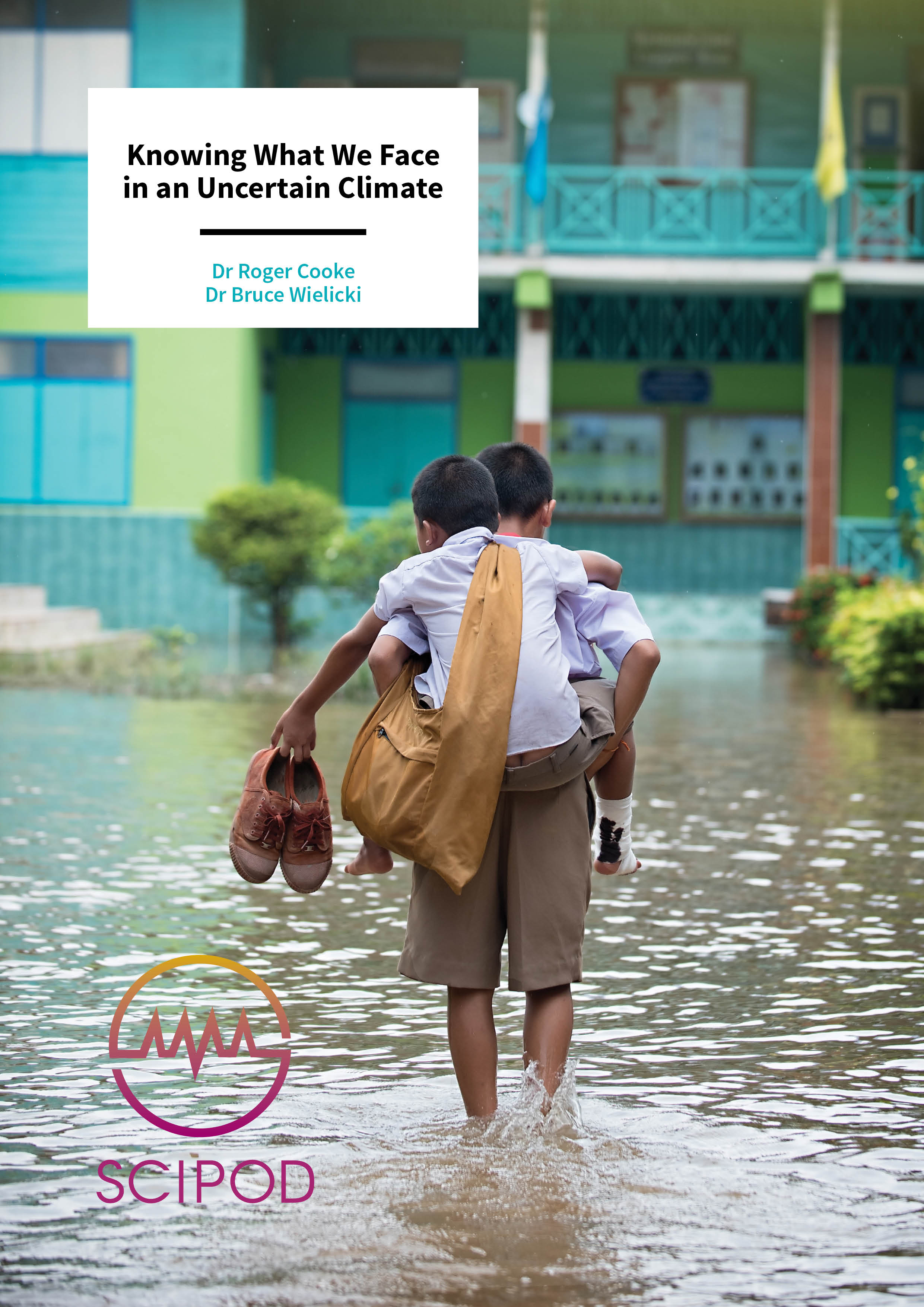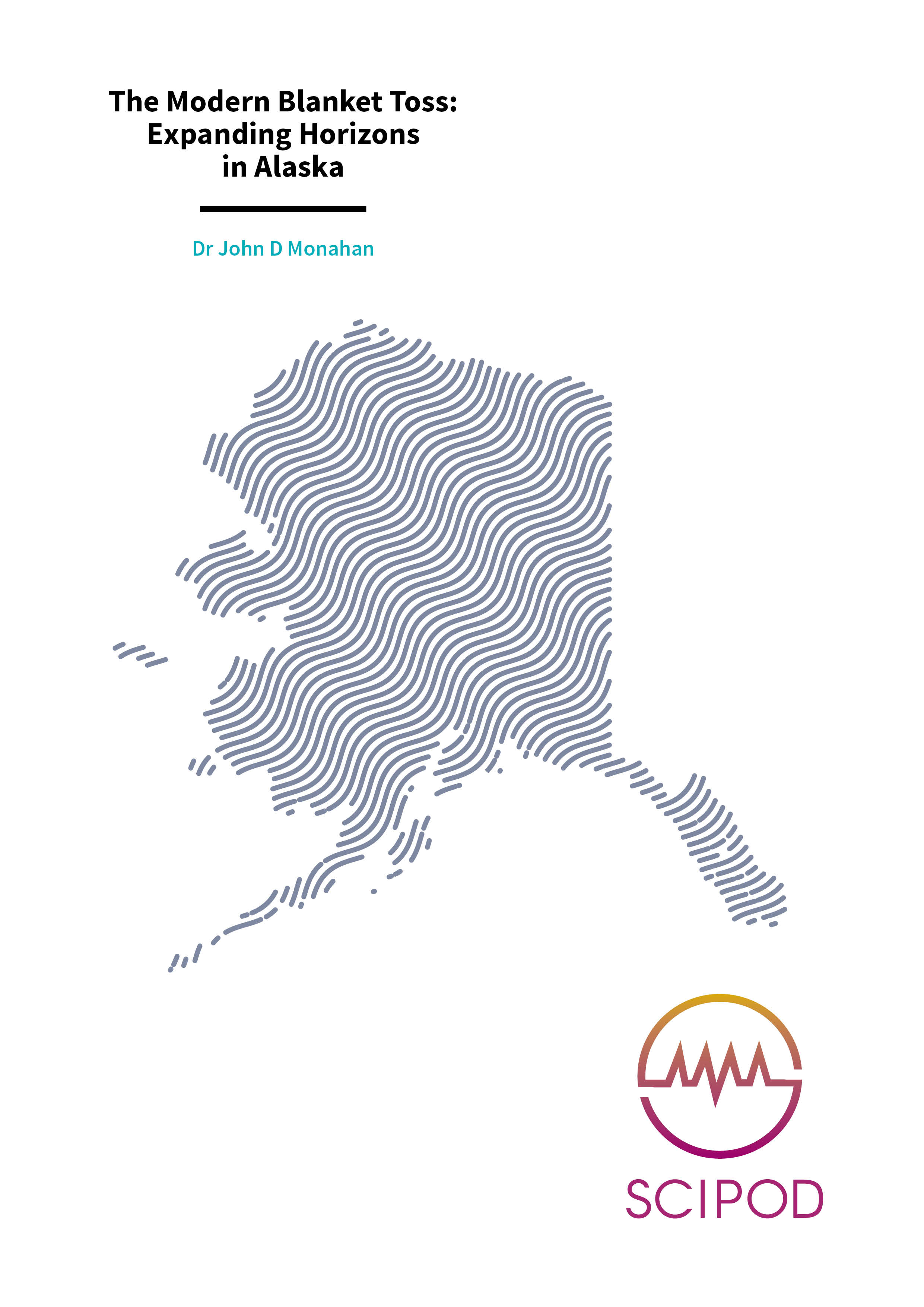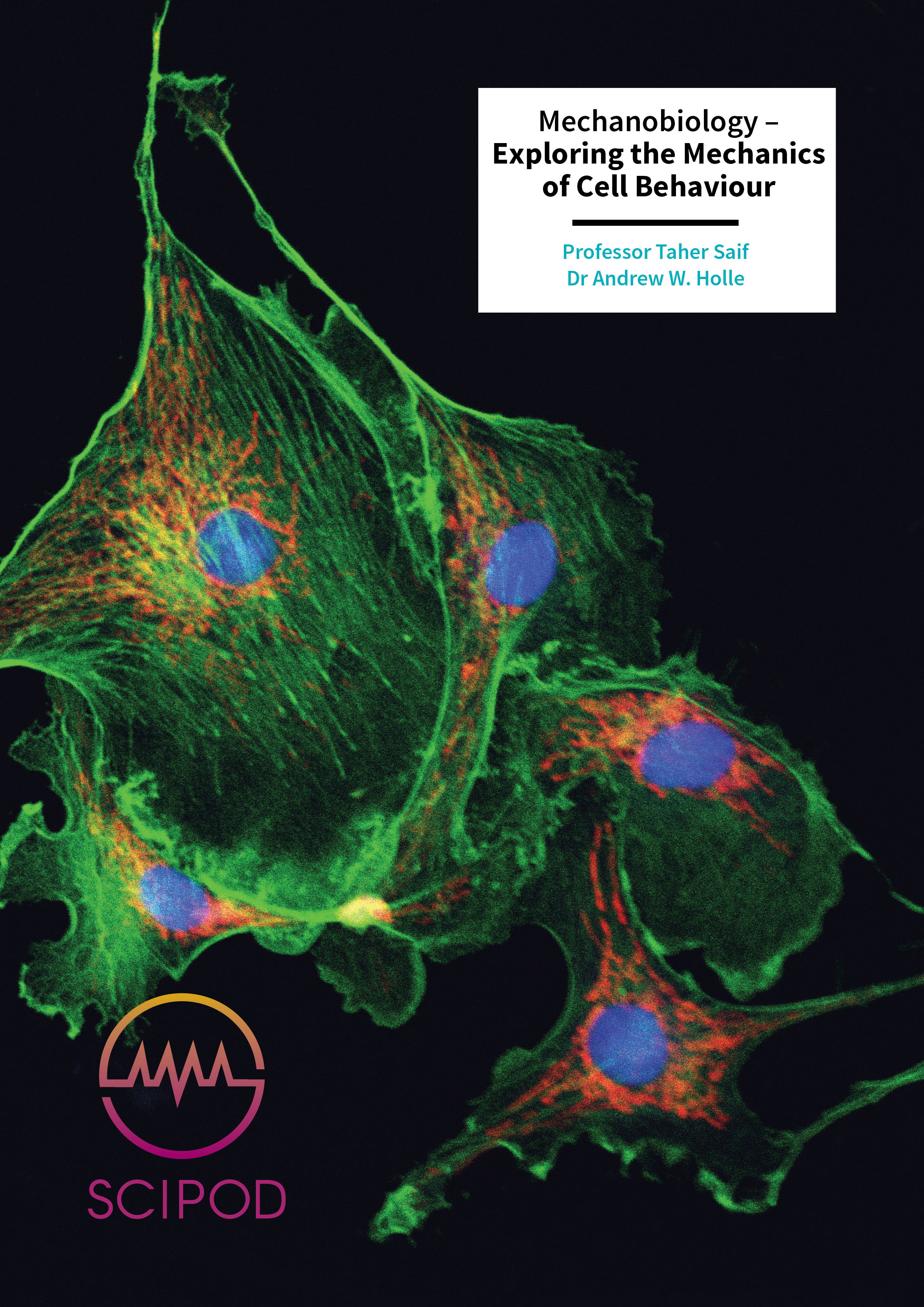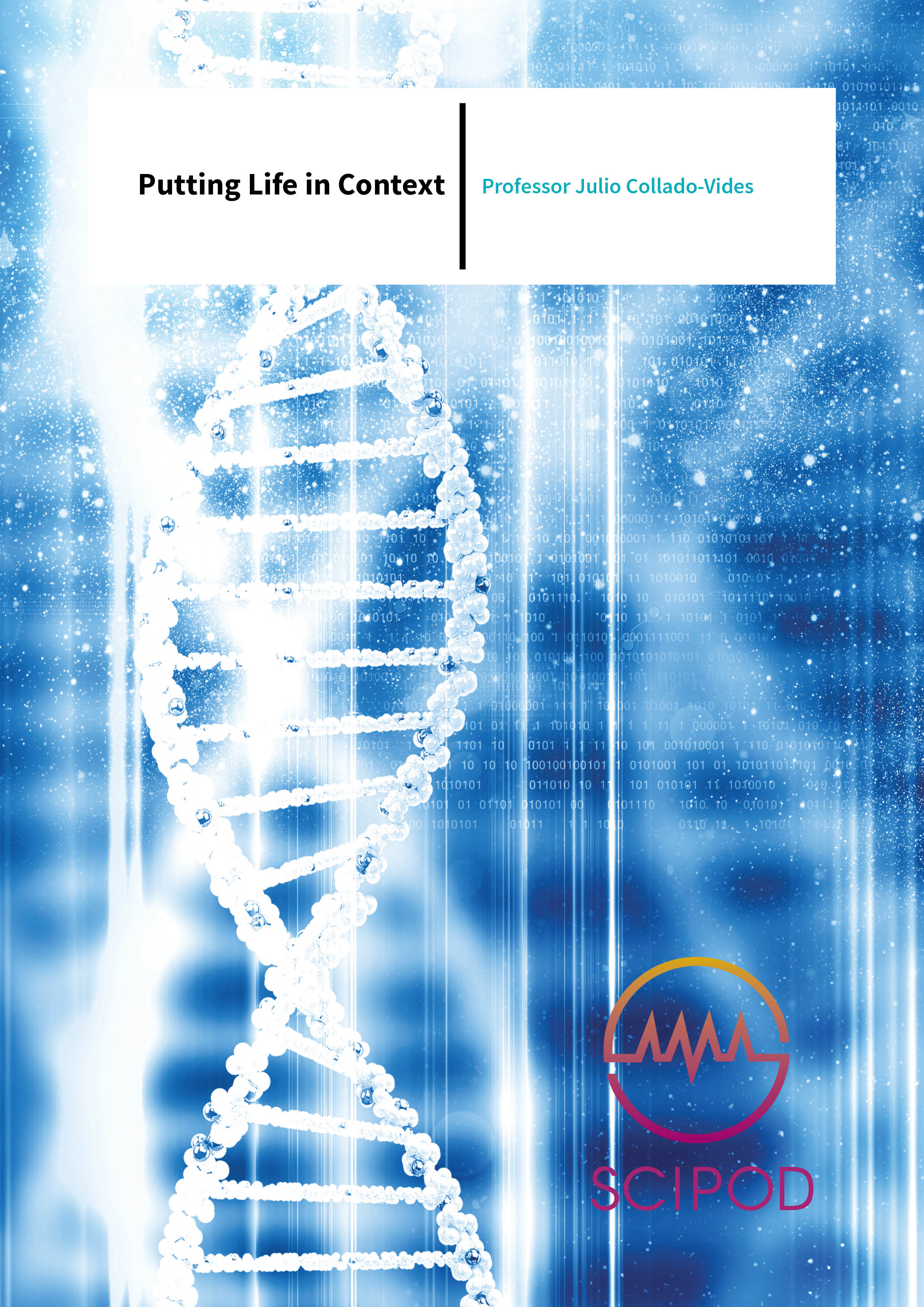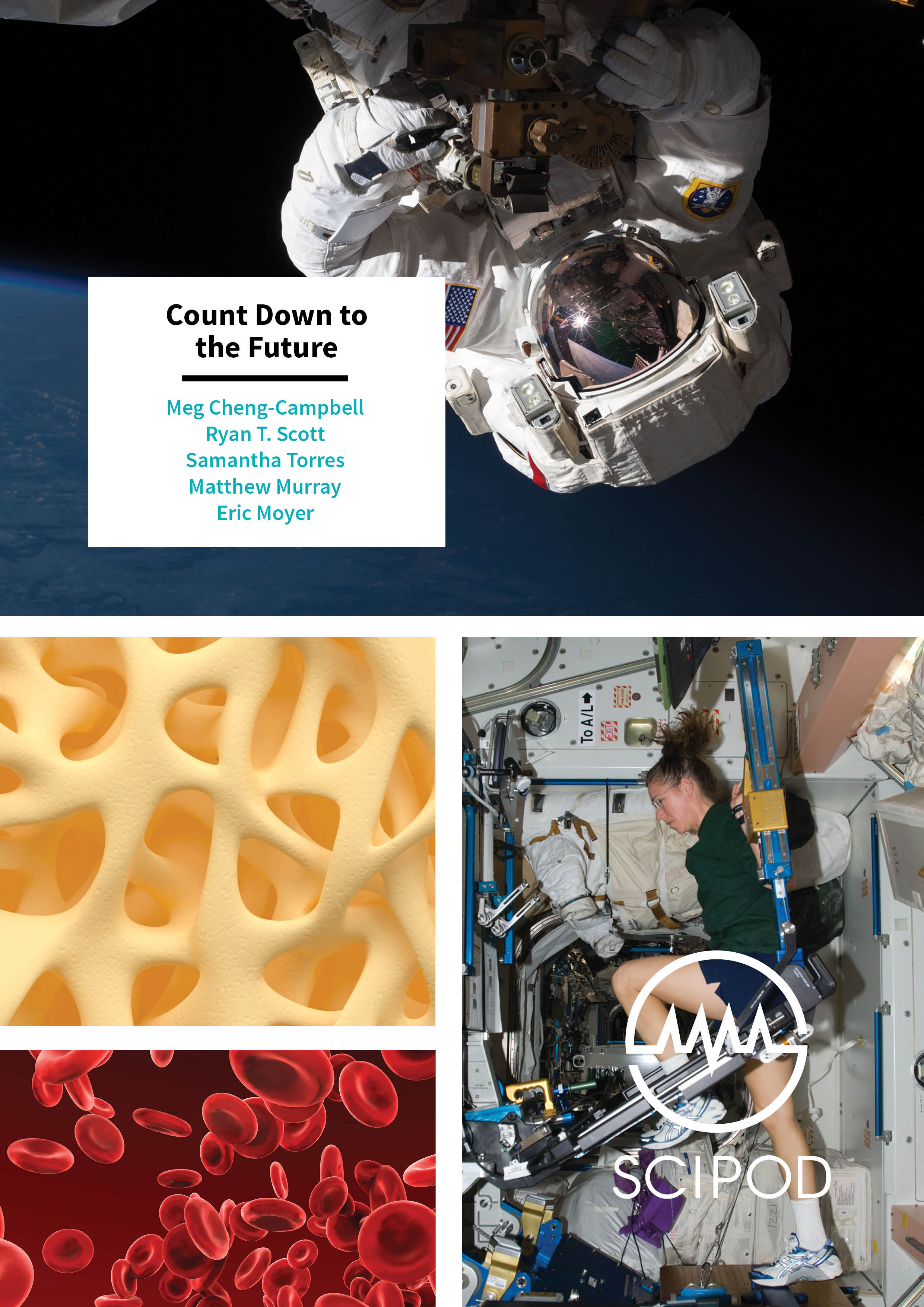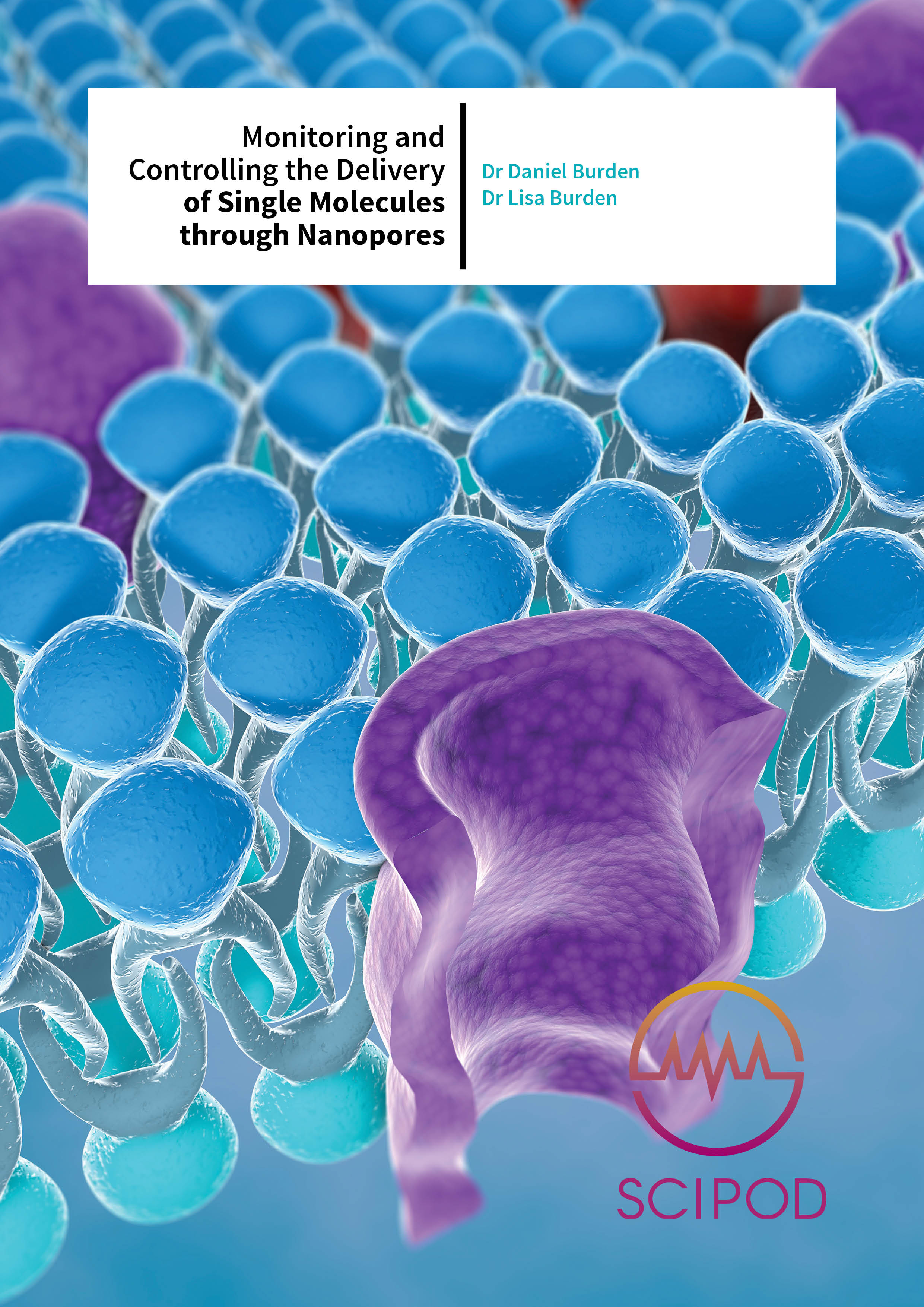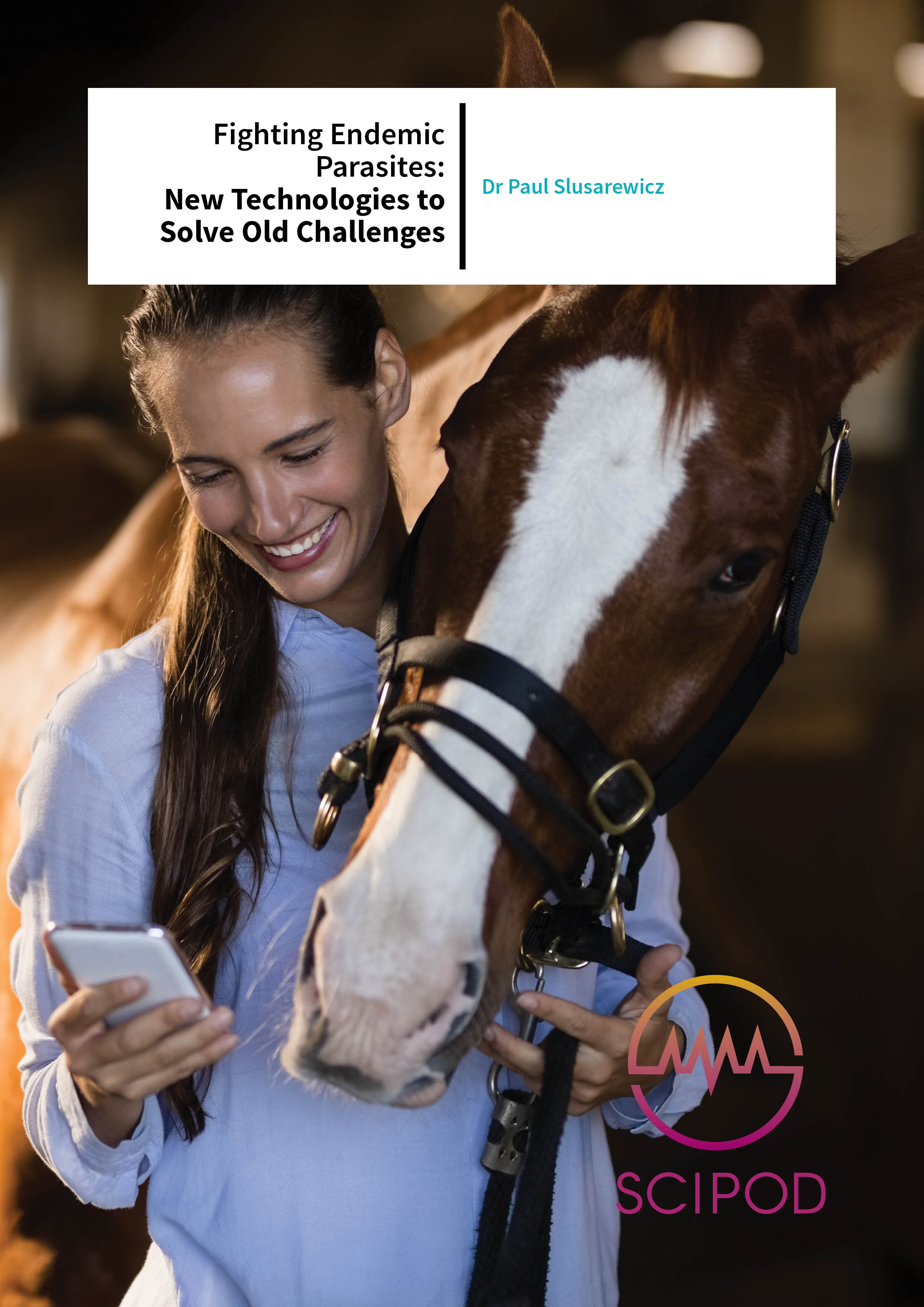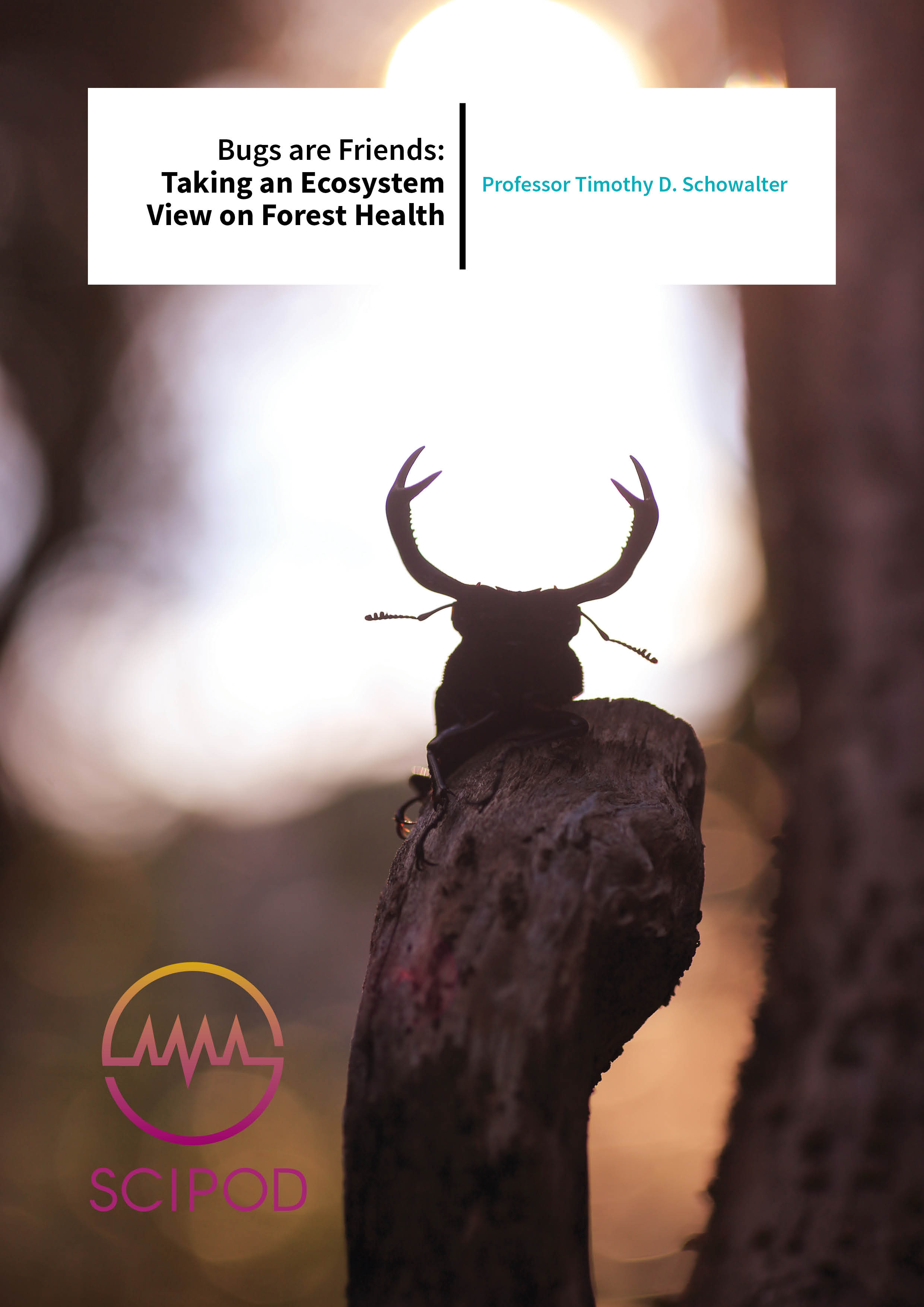Supporting Children with Challenging Behaviours – Dr Andy Frey, University of Louisville
May 24, 2018education & training, social and behavioural sciences
Children with disruptive behaviours require intensive support in school. Dr Andy Frey, professor at the University of Louisville, has been developing and evaluating interventions that could help these children to begin their school years positively and successfully. The First Step Next and homeBase intervention programs involve a collaboration between parents and teachers to support children with problematic behavioural patterns achieve their potential.

You may also like …

Dr. Robin Temmerman | Healthy Pets, Safer Humans: A Positive Step Forward for Veterinary Science
Antibiotic resistance may prove to be one of the most significant health challenges we will face this century. As bacteria continue to evolve resistance mechanisms to our arsenal of antibiotics, infections could become a more serious prospect, and medical procedures with a substantial infection risk, such as open surgery, could become unacceptably risky. While antibiotic resistance is often considered to be a human problem, it’s also a growing issue in veterinary medicine. Our pets can also develop infections that are difficult to treat when resistant bacteria are involved. Moreover, as we frequently share a living space with such animals, there is potential for crossover of resistant bacteria to humans. In a far-reaching study, Dr. Robin Temmerman and his colleagues of the executive animal health study center (or CEESA), which is a consortium of animal health companies, shed light on this issue, exploring antibiotic resistance in bacterial urinary tract infections in dogs and cats across Europe. Their findings provide hope and a roadmap for tackling this global problem.

Dr Patrick O’Neill | Revolutionising Pharmaceutical Synthesis with Continuous Flow Chemistry
Dr Patrick O’Neill of Pfizer, Ireland, and Professor Jie Wu of the National University of Singapore, and their team, have made groundbreaking advancements in the synthesis of 1,2,3-triazole – a key building block in the manufacture of a life-saving antibiotic. Replacing traditional batch processes, they developed a safer, more efficient method using continuous flow chemistry, which addresses potential global supply chain vulnerabilities. This innovative approach eliminates hazardous intermediates, improves reaction safety, and ensures a stable supply of 1,2,3-triazole for global pharmaceutical production.

Dr. Ivan Schewitz | Pectus Excavatum: Minimally Invasive Repair, The Nuss Procedure
For a long time, deformities of the chest wall, such as pectus excavatum, a condition where the chest appears to have sunken, remained untreated or were treated using crude and invasive techniques. However, thanks to innovations led by surgeons such as Prof. Donald Nuss of Eastern Virginia Medical School, these procedures have undergone a remarkable transformation. Such work has shifted the paradigm from radical surgery to minimally invasive solutions, changing lives and restoring confidence for countless patients. Now, a Review Article published in the African Journal of Thoracic and Critical Care Medicine, and co-authored by Prof. Donald Nuss and Dr. Ivan Schewitz of the Department of Cardiothoracic Surgery at the University of Pretoria, South Africa, charts the remarkable progress in treating pectus excavatum.

Dr. Mabrouka Abuhmida | From Shame to Support: Mental Health Stigma in Conservative Communities
In many regions around the globe, common mental health issues are cloaked in secrecy by those who experience them, and are frequently stigmatized and misunderstood by others. This is a particularly serious issue in conservative communities, where cultural and religious values have significant effects on the provision and use of appropriate mental health care resources. In a new mini-review article published in the journal Frontiers in Public Health, Dr. Mabrouka Abuhmida, Dr. Wendy Booth and Dr. Felix Anyanwu of the University of South Wales in the UK, have explored this critical topic, revealing the damaging impact of stigma in such communities, and exploring new solutions to enable adequate mental healthcare in this context.

Caroline Kingdon | From Stigma to Support: A New Approach to ME/CFS Treatment in the UK
Imagine living with an illness that can sap your energy levels so completely that even day-to-day tasks, such as doing laundry, walking the dog, or even getting out of bed can be insurmountable challenges. To make matters worse, this illness is not well understood either by the public or by medical staff, and is often dismissed and stigmatised, making it difficult to find understanding or treatment. This is the unfortunate lived experience of many people with myalgic encephalomyelitis/chronic fatigue syndrome (or ME/CFS for short). In a recent Communication article, researcher Caroline Kingdon of the London School of Hygiene and Tropical Medicine, and colleagues, discuss this misunderstood condition through the prism of the 2021 guideline for the treatment of those with ME/CFS, which have been published by the UK’s National Institute for Health and Care Excellence (or NICE for short). Their article aims to inform primary caregivers about the NICE guideline, and, happily, reveals that the new guideline prioritises an overdue shift toward compassionate and patient-focused care for ME/CFS.

Dr. Roberta Martinelli | Sepsis and the Silent Battle Within: Neutrophils’ Role in Sepsis-Related Complications
Sepsis is a critical illness that begins with a simple infection and degenerates into a severe and dysregulated immune response that affects the whole body. This significant immune reaction typically causes widespread inflammation and can progress very rapidly. This can result in serious damage to tissues and organs, potentially leading to organ failure and death. Despite the severity of sepsis and its frequent poor prognosis, effective treatments are still elusive, and many sepsis patients remain at high risk of death and serious complications. Part of the issue is the complex cascade of cellular and biochemical events that underlie sepsis, which has made it difficult to obtain a comprehensive overview of the illness from which to design an effective treatment. Dr. Roberta Martinelli, Executive Director of Stromal Immunology and Early Discovery, Discovery Immunology, Merck, and colleagues, have published a study in the journal iScience which reveals new insights into the complex biological milieu underlying sepsis, and uncovers pathways and potential treatment targets that could change how we diagnose and treat this life-threatening illness.

Dr. Kim Saverno | Real-World Impact: How Targeted Therapy is Changing Cholangiocarcinoma Treatment
Cholangiocarcinoma is an aggressive cancer that begins in the bile ducts. While the cancer is relatively rare, affecting approximately 8,000 people in the United States each year, unfortunately, it is often undiagnosed until an advanced stage. This late diagnosis makes cholangiocarcinoma very challenging to treat, and less than 10% of patients survive for five years after diagnosis. Traditional anti-cancer treatments, such as chemotherapy, have only limited effectiveness in cholangiocarcinoma, and can cause serious side effects. Recently developed immunotherapy and targeted therapies have provided promising options for this difficult-to-treat disease. Dr. Kim Saverno of the Incyte Corporation, a biopharmaceutical company headquartered in the U.S., and the study’s co-authors, have been studying the real-world use of an FDA-approved targeted drug for cholangiocarcinoma called pemigatinib. Pemigatinib was approved by the FDA in 2020. It can be specifically used for cholangiocarcinoma patients who have genetic changes in a protein known as fibroblast growth factor receptor 2, or FGFR2 for short. Their study, to the best of our knowledge, is the first to examine pemigatinib’s use in real-world settings, and reveals information about treatment patterns, FGFR2 testing patterns, and effectiveness of pemigatinib for cholangiocarcinoma when used in everyday practice.

Dr Richard Saumarez | Beyond the Heartbeat: How Direct Cardiac Investigation Could Save Lives in Hypertrophic Cardiomyopathy and Beyond
Hypertrophic cardiomyopathy (or HCM for short) is a serious heart condition that involves thickening of the heart muscle wall and disruption of the normal tissue architecture, called ‘disarray’. This can result in sudden cardiac death caused by abnormal heart rhythms, known as arrhythmias. Identifying those HCM patients who are most at risk could permit preventative measures, such as implanting a cardioverter-defibrillator, which could potentially be lifesaving. However, current techniques to predict the risk of sudden death in HCM are limited, leaving patients underserved. In a recent study, Dr Richard Saumarez, an academic cardiologist formerly of the University of Cambridge, and colleagues, questioned whether conventional methods, which consider risk factors such as family history of sudden death or the degree of heart muscle thickening, are effective in predicting sudden death in HCM patients. Their research suggests that risk factor assessments might miss crucial information about the heart’s electrical behaviour, which could provide more accurate clues about the risk of sudden death. As an alternative, the researchers propose direct heart-investigation methods, called electrophysiological techniques, as a more reliable assessment. Although the study was concerned with HCM, the arguments put forward are more general and applicable to other diseases, particularly to survivors of myocardial infarcts who are also at risk of sudden death.
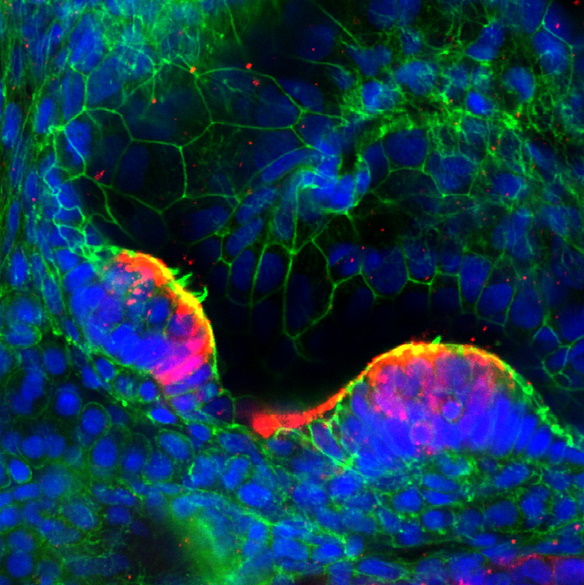
Dr. Qiang Wang | Fishing for Findings: Uncovering the Genetics of Hearing Loss
Our hearing is amongst our most profound senses, connecting us to the surrounding world through sound. However, this connection is diminished or absent altogether in millions of people around the world because of hearing loss. Hearing loss is a common sensory disorder and is often hereditary. The condition can be caused by complex genetic factors, and so far, researchers have linked over 150 genes to hearing impairment. Now, a new collaborative study led by Dr. Qiang Wang of the South China University of Technology, Dr. Tao Cai from the National Institute of Health, and Dr. Yuan Li from the China-Japan Friendship Hospital in Beijing, has uncovered a new genetic clue, a mutation in the OXR1 gene, that could upend our understanding of hereditary hearing loss, and the eventual treatments that we develop to combat it.

Dr. Sarallah Rezazadeh | Unlocking the Secrets of Aging: How Stem Cells Hold the Key to Vitality
Aging is a tale written by the cells in our bodies, although some cell types play a bigger role than others. At the crux of this story is an intriguing protagonist: the stem cell. These master builders, which can differentiate into any cell type, thereby helping to replace diseased or worn-out tissues, are essential for tissue repair and in maintaining health into old age. But as we get older, the capabilities of stem cells gradually diminish, which is known as stem cell exhaustion and is a key facet of aging itself. Stem cell exhaustion plays a role in a large number of age-related diseases, meaning that it could be a crucial research target in developing new treatments and techniques to help us age well. A Research Topic in the open-access journal Frontiers in Aging has been curated by Dr. Sarallah Rezazadeh of the Icahn School of Medicine at Mount Sinai and Professor Georgina May Ellison-Hughes of King’s College London. The Topic collects groundbreaking studies into stem cell exhaustion under one open-access roof, exploring the detailed mechanisms underlying the phenomenon and establishing the field in a wider context to identify promising therapeutic approaches for those later in life.





